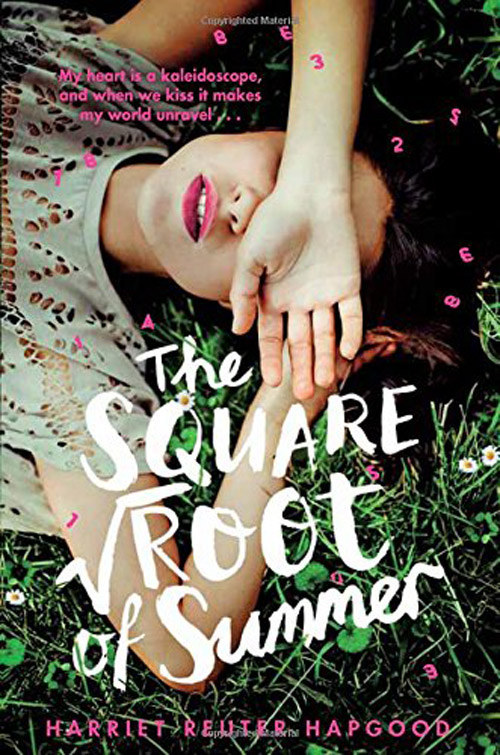
One icy Saturday night just after Christmas 2012, novelist Harriet Reuter Hapgood and I were holed up in a studenty boozer in New Cross, south London. I was thrashing my way through the final throes of a doomed five-year relationship, and Reuter Hapgood was mourning the loss of her beloved grandmother, who had died the week before. Both of us were employing our favourite method of escape: liberally applied eyeliner, three bottles of pinot grigio, and the frazzled kind of exuberance that gets you booted out of places.
"I was really devastated and it had been a tough week at work too, so I remember feeling very much like I needed a ridiculous night of aliveness and being myself again," Reuter Hapgood tells me over a more sedate spread of biscuits, tea, and lemonade on a sunny afternoon recently. "I needed catharsis and sometimes that means drinking, or dancing, and feeling a whole bunch of different emotions," she adds. "I remember a couple of days after that night out lying on my bedroom floor and just sobbing my heart out."
It was shortly after that night that she began serious work on The Square Root of Summer, her long-fiction debut that follows the similarly grief-stricken Gottie H. Oppenheimer through time, space, and the kind of heady heartbreak that every former teen has felt. Like Reuter Hapgood, Gottie has also just lost a grandparent, but she escapes her pain by disappearing down wormholes – the sci-fi kind, rather than ones in your garden – instead of down the neck of a bottle of wine.
The 17-year-old heroine's world is shaken when her grandfather, known as Grey, dies suddenly from a stroke the summer before the story takes place. Grey, a flamboyant bookshop owner who shared a cosy Norfolk cottage with Gottie, her sequin-catsuit-wearing brother Ned, and their mild-mannered dad, is like a second father to Gottie and Ned, and after losing him, she retreats from reality – literally. With memories of Grey still raw a year after his death, Gottie begins falling through rips in the space-time continuum to the times those moments originally took place. In grieving her grandfather, she finds herself back beside him. "When you're in that situation, you go into your head and you look at memories a lot, and you spend far too much time looking at the past rather than going, 'OK, what's next?'" Reuter Hapgood says.
"Letting go is hard, because it's acknowledging that someone's gone. But if you're living in memories, eventually you'll notice that you're not living."
But when Ned plans to go ahead with Grey's annual end-of-summer party – a bohemian bacchanal as wild as he was – Gottie is forced to open her eyes to how much the rest of her family miss him too. She finally understands their pain is shared, and the love it has sprung from gives her hope for the future, which drags her out of the past. As Gottie's scars begin to heal, so do the rips in the space-time continuum.
"Letting go is hard, because it's acknowledging that someone's gone, and there's a finality to that that's really tough," Reuter Hapgood reflects. "But if you're living in memories, eventually you'll notice that you're not living."
"Turtling" – i.e., disappearing into one's own shell – is the name Reuter Hapgood gives to her time-travelling protagonist's retreat tactics. "Everyone approaches grief differently, but you can become so internal and wrapped up in your own process that you don't communicate with people any more," she adds.
I suggest that she might have been "turtling" (albeit in her bedroom, rather than down wormholes) when she threw herself into writing the book that, prior to her grandmother's death, she had been simply sketching out in notepads – a plot idea here, an equation for sadness-avoiding black holes there. Between that time and when Square Root became the prize in a bidding war between several multinational publishing houses in 2015 (Macmillan won, and Reuter Hapgood is already writing her next book for them), she seemed to fall off the face of the earth. "I saw pretty much nobody for two years," she says.
"Grief is such a weird process because there is no process to it. You might show it by sleeping around or working too hard, or kind of just acting haywire for a bit," she continues. "But what you don't realise is that to the external world, you don't look like you're grieving – you might just look like you're being a dick."
While Reuter Hapgood says it was important for her to put some distance between Gottie's story and her own – "all of the characters have bits and pieces of people I know rather than solely reflecting one person" – she did find it therapeutic to be able to weave little bits of her grandmother's stories into Grey, and the finished book is dedicated to her memory.
"She was very funny," Reuter Hapgood recalls. "She would answer the door with a wine in her hand at 10:30am and say, 'I'm 87 years old, I'll do what I like!'" It's clear that her spirit lives on in Grey, described by Reuter Hapgood in the book as "a supersize Gandalf in a Rolling Stones T-shirt".
The process of actually writing a book helped Reuter Hapgood work through her pain too. "You do just get to write down everything that you're thinking and feeling, and then quickly change it all to pretend that it's someone else's thoughts," she says. "I got to be honest on the page in a way that I don't think I necessarily was [being] in real life."
The Square Root of Summer might involve a healing process – both in plot and in Reuter Hapgood's writing of it – but it's anything but a maudlin read.
"I wanted to write about family and how important it is, and the other different types of love that there are too," she says. Thomas, Gottie's estranged childhood best friend, is suddenly thrust back into her life a year after Grey's death, and a sexual tension fizzes between the two of them.
But she must also contend with Jason, Ned's leather-jacket-wearing, floppy-haired best friend (you know the type) with whom she had a steamy secret love affair the previous summer, before he ended up breaking her heart. This summer, Jason has a new girlfriend.
We've all been out with – or at least had a painfully unrequited crush on – a Jason. He's the funniest, sexiest, cleverest, most misunderstood guy to stop texting you back, or never ask you out, probably because he just can't handle how much he "truly loves you deep down" or something. He's Hannah Horvath's non-boyfriend Adam, Trent Lane from Daria, the type of boy for whom the prototype will always be My So Called Life's Jordan Catalano.
"Mate, you're just going to prolong the heartbreak if you stalk their Instagram feed."
And many of us will have felt the kind of crushing heartbreak that comes along with such entanglements, which at Gottie's age can seem as earth-shattering as the grief of close family bereavement.
"I can remember all my heartbreaks – and rejection hurts. You stop sleeping, you stop eating, you might obsess," Reuter Hapgood says.
"When you're a teenager you have no context for the emotions you're feeling because you don't have enough experience to know you're going to get through them and you're going to be fine," she continues. "You give everything of yourself because you haven't been hurt. You've given yourself no safety net, and then it ends and it's raw and painful."
She was keen to draw a parallel between the ways we can wallow in the memories of a loved one or a formative first love, whether that takes disappearing down wormholes like Gottie or other, less fantastical ways you might find to hang on. "Mate, you're just going to prolong the heartbreak if you stalk their Instagram feed," she says, laughing.
That time is a healer might be one of the oldest clichés in the book, but it’s a message the author hopes her readers will nonetheless draw from The Square Root of Summer. While the pain of losing her grandmother lingered stubbornly at first, she’s now able to happily remember the wildest things the woman who loved a morning tipple said and did with what she describes as a “snort-laugh”.
And as for the heartbreaking boys Reuter Hapgood thought she’d never forget? “I’m like, did we even go out?”
The Square Root of Summer by Harriet Reuter Hapgood is out now.

